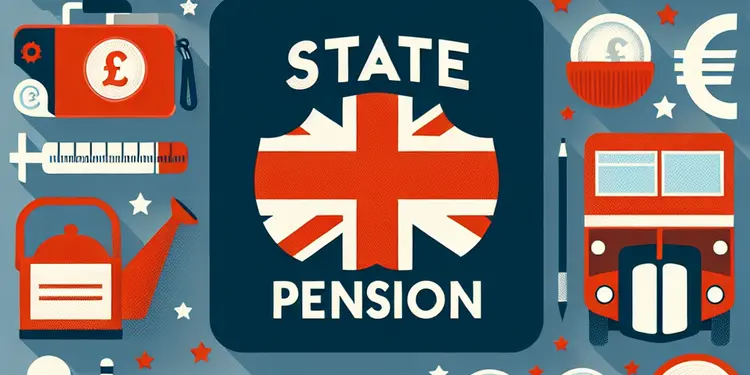
Find Help
More Items From Ergsy search
-

Why is the National Living Wage being increased?
Relevance: 100%
-

UK national living wage increase 2026
Relevance: 99%
-

Will the increase in the National Living Wage affect inflation?
Relevance: 93%
-

How can I calculate my new earnings based on the National Living Wage increase?
Relevance: 84%
-

Is the Living Wage Foundation's rate the same as the National Living Wage?
Relevance: 83%
-

Who is eligible for the National Living Wage?
Relevance: 82%
-

How is the National Living Wage calculated?
Relevance: 81%
-

How does the National Living Wage differ from the National Minimum Wage?
Relevance: 80%
-

Are apprentices entitled to the National Living Wage?
Relevance: 80%
-

What is the new UK National Living Wage for 2026?
Relevance: 80%
-

How often is the National Living Wage reviewed?
Relevance: 77%
-

How does the UK National Living Wage compare internationally?
Relevance: 76%
-

Are employers legally required to pay the National Living Wage?
Relevance: 76%
-

Are zero-hour contract workers entitled to the National Living Wage?
Relevance: 74%
-

Where can I find official announcements on the National Living Wage?
Relevance: 72%
-

What happens if an employer pays below the National Living Wage?
Relevance: 72%
-

Does the National Living Wage increase mean my taxes will change?
Relevance: 64%
-

How often do wage rates change in the UK?
Relevance: 52%
-

How does the National Living Wage increase impact small businesses?
Relevance: 43%
-

When will the new National Living Wage come into effect?
Relevance: 36%
-

Do gig workers have the right to a minimum wage?
Relevance: 34%
-

Can my wages be garnished for unpaid student loans?
Relevance: 33%
-

What should I do if my employer does not pay the new National Living Wage?
Relevance: 32%
-

How Rising Living Costs Are Impacting Family Wellbeing
Relevance: 28%
-

What is the National Trust?
Relevance: 28%
-

Survey Reveals Increasing Financial Anxiety Among UK Households
Relevance: 28%
-

Do I need to pay tax on the £500 cost of living payment?
Relevance: 28%
-

Will the state pension amount change with the age increase?
Relevance: 27%
-

Are there seasonal jobs with the National Trust?
Relevance: 27%
-

Is the basic State Pension enough to live on?
Relevance: 27%
-

Navigating the UK Cost of Living Crisis: Tips for Families
Relevance: 27%
-

What if I have gaps in my National Insurance record?
Relevance: 27%
-

Impact of Cost of Living on UK Communities
Relevance: 27%
-

Is there a change in National Insurance rates for 2026?
Relevance: 27%
-

What are National Trust Jobs?
Relevance: 27%
-

How many National Insurance contributions do I need for the basic State Pension?
Relevance: 26%
-

Do National Trust jobs require travel?
Relevance: 25%
-

Is the £500 cost of living payment taxable?
Relevance: 25%
-

Does the National Trust offer internships?
Relevance: 25%
-

Can I work for the National Trust part-time?
Relevance: 25%
Introduction to the National Living Wage
The National Living Wage (NLW) is a statutory minimum wage rate set by the UK government. It applies to workers aged 23 and over. Its purpose is to ensure that employees receive a fair compensation that meets the cost of living and improves their quality of life. The NLW differs from the National Minimum Wage, which applies to younger workers and apprentices. Adjustments to the National Living Wage occur annually, often bringing changes that reflect the current economic environment.
Reasons for Increasing the National Living Wage
The primary reason for increasing the National Living Wage is to help offset rising living costs. Inflation affects the prices of essential goods and services, making it necessary for wages to increase to maintain the purchasing power of workers. Therefore, when inflation rises, maintaining or increasing the wage becomes crucial to ensure that workers can afford everyday necessities, such as food, housing, and energy.
Another factor is the commitment to reduce income inequality. Increasing the National Living Wage can contribute to closing the wage gap between low-income workers and those earning higher salaries. It enables lower-paid workers to receive a larger share of economic growth. This is important for social equity, as it supports a more balanced distribution of wealth across society.
Economic Impact of the Wage Increase
Raising the National Living Wage also has broader economic implications. It can boost consumer spending, as workers with higher wages are likely to spend more on goods and services. This increase in consumer spending can stimulate economic growth and benefit businesses through higher demand. However, it also poses challenges for some employers, particularly small and medium-sized enterprises (SMEs), who may face increased payroll costs. Employers must balance paying higher wages with managing their overall business expenses to remain profitable.
Government and Public Policy Considerations
The decision to increase the National Living Wage is part of the government's broader policy objectives to support economic fairness and productivity. The increase is often based on recommendations from the Low Pay Commission, an independent body tasked with evaluating the impact of minimum wage policies. The government weighs the benefits to workers against potential impacts on employment and business viability.
Moreover, public opinion and political pressure play a role in these decisions. Many citizens and advocacy groups support higher wages to combat poverty and improve living standards. As such, adjustments to the National Living Wage can be seen as a response to both economic factors and public demand.
Conclusion
The increase in the National Living Wage is a crucial measure aimed at ensuring that workers are paid fairly in the face of rising living costs and economic challenges. While it provides benefits such as reducing poverty and boosting consumer spending, it also requires careful consideration of its impacts on businesses and employment. Overall, the increase reflects a commitment to improving quality of life and promoting social equity in the UK.
Frequently Asked Questions
What is the National Living Wage?
The National Living Wage is the minimum hourly wage rate that employers must pay to workers aged 23 and over in the UK.
Why is the National Living Wage being increased?
The National Living Wage is increased to keep up with inflation, cost of living and to ensure fair compensation for workers.
Who decides the increase of the National Living Wage?
The increase is decided by the UK government, based on recommendations from the Low Pay Commission.
How does the increase in National Living Wage affect workers?
An increase in the National Living Wage means that workers will earn more per hour, which can help improve their standard of living.
When is the National Living Wage updated?
The National Living Wage is typically updated annually.
Is the increase in the National Living Wage the same across the UK?
Yes, the National Living Wage applies uniformly across the UK for eligible workers.
How does the increase affect employers?
Employers must adjust their pay structures to ensure they meet or exceed the new wage rate, which can increase operating costs.
What is the difference between the National Living Wage and the National Minimum Wage?
The National Living Wage applies to workers aged 23 and over, while the National Minimum Wage applies to younger workers.
Does the increase in the National Living Wage keep pace with inflation?
The government aims to align the National Living Wage increases with inflation and overall economic conditions.
Are all workers in the UK entitled to the National Living Wage?
All workers aged 23 and over are entitled to the National Living Wage unless they are in specific job categories that are exempt.
How does an increase in the National Living Wage impact inflation?
While it could contribute to higher prices if businesses pass on higher labor costs, it can also stimulate economic activity by increasing workers' purchasing power.
What role does the Low Pay Commission play in setting the National Living Wage?
The Low Pay Commission researches and advises the government on wage rates to ensure they are fair and sustainable.
Does the increase affect part-time workers?
Yes, part-time workers aged 23 and over are entitled to the same hourly National Living Wage as full-time workers.
What happens if an employer does not comply with the National Living Wage?
Employers who fail to comply can face legal penalties, including fines and being required to pay back wages.
How do wage increases benefit the economy?
Wage increases can boost consumer spending, improve worker morale, and reduce employee turnover.
Could the increase negatively impact businesses?
Some businesses, particularly small ones, may face higher costs, which could impact their profitability.
Can the National Living Wage vary by region?
No, the National Living Wage is a nationwide rate and does not vary by region.
How can workers ensure they receive the National Living Wage?
Workers should check their pay slips and, if necessary, approach their employer or seek advice from employment rights organizations.
Are apprentices entitled to the National Living Wage?
Apprentices may have a separate minimum wage rate unless they are 23 or older and have completed the first year of their apprenticeship.
What is the anticipated impact of the increase on poverty levels?
Raising the National Living Wage can help reduce poverty levels by providing workers with a higher income.
Useful Links
Have you found an error, or do you have a link or some information you would like to share? Please let us know using the form below.
-->
This website offers general information and is not a substitute for professional advice.
Always seek guidance from qualified professionals.
If you have any medical concerns or need urgent help, contact a healthcare professional or emergency services immediately.
Some of this content was generated with AI assistance. We’ve done our best to keep it accurate, helpful, and human-friendly.
- Ergsy carfully checks the information in the videos we provide here.
- Videos shown by Youtube after a video has completed, have NOT been reviewed by ERGSY.
- To view, click the arrow in centre of video.
- Most of the videos you find here will have subtitles and/or closed captions available.
- You may need to turn these on, and choose your preferred language.
- Go to the video you'd like to watch.
- If closed captions (CC) are available, settings will be visible on the bottom right of the video player.
- To turn on Captions, click settings .
- To turn off Captions, click settings again.
More Items From Ergsy search
-

Why is the National Living Wage being increased?
Relevance: 100%
-

UK national living wage increase 2026
Relevance: 99%
-

Will the increase in the National Living Wage affect inflation?
Relevance: 93%
-

How can I calculate my new earnings based on the National Living Wage increase?
Relevance: 84%
-

Is the Living Wage Foundation's rate the same as the National Living Wage?
Relevance: 83%
-

Who is eligible for the National Living Wage?
Relevance: 82%
-

How is the National Living Wage calculated?
Relevance: 81%
-

How does the National Living Wage differ from the National Minimum Wage?
Relevance: 80%
-

Are apprentices entitled to the National Living Wage?
Relevance: 80%
-

What is the new UK National Living Wage for 2026?
Relevance: 80%
-

How often is the National Living Wage reviewed?
Relevance: 77%
-

How does the UK National Living Wage compare internationally?
Relevance: 76%
-

Are employers legally required to pay the National Living Wage?
Relevance: 76%
-

Are zero-hour contract workers entitled to the National Living Wage?
Relevance: 74%
-

Where can I find official announcements on the National Living Wage?
Relevance: 72%
-

What happens if an employer pays below the National Living Wage?
Relevance: 72%
-

Does the National Living Wage increase mean my taxes will change?
Relevance: 64%
-

How often do wage rates change in the UK?
Relevance: 52%
-

How does the National Living Wage increase impact small businesses?
Relevance: 43%
-

When will the new National Living Wage come into effect?
Relevance: 36%
-

Do gig workers have the right to a minimum wage?
Relevance: 34%
-

Can my wages be garnished for unpaid student loans?
Relevance: 33%
-

What should I do if my employer does not pay the new National Living Wage?
Relevance: 32%
-

How Rising Living Costs Are Impacting Family Wellbeing
Relevance: 28%
-

What is the National Trust?
Relevance: 28%
-

Survey Reveals Increasing Financial Anxiety Among UK Households
Relevance: 28%
-

Do I need to pay tax on the £500 cost of living payment?
Relevance: 28%
-

Will the state pension amount change with the age increase?
Relevance: 27%
-

Are there seasonal jobs with the National Trust?
Relevance: 27%
-

Is the basic State Pension enough to live on?
Relevance: 27%
-

Navigating the UK Cost of Living Crisis: Tips for Families
Relevance: 27%
-

What if I have gaps in my National Insurance record?
Relevance: 27%
-

Impact of Cost of Living on UK Communities
Relevance: 27%
-

Is there a change in National Insurance rates for 2026?
Relevance: 27%
-

What are National Trust Jobs?
Relevance: 27%
-

How many National Insurance contributions do I need for the basic State Pension?
Relevance: 26%
-

Do National Trust jobs require travel?
Relevance: 25%
-

Is the £500 cost of living payment taxable?
Relevance: 25%
-

Does the National Trust offer internships?
Relevance: 25%
-

Can I work for the National Trust part-time?
Relevance: 25%


